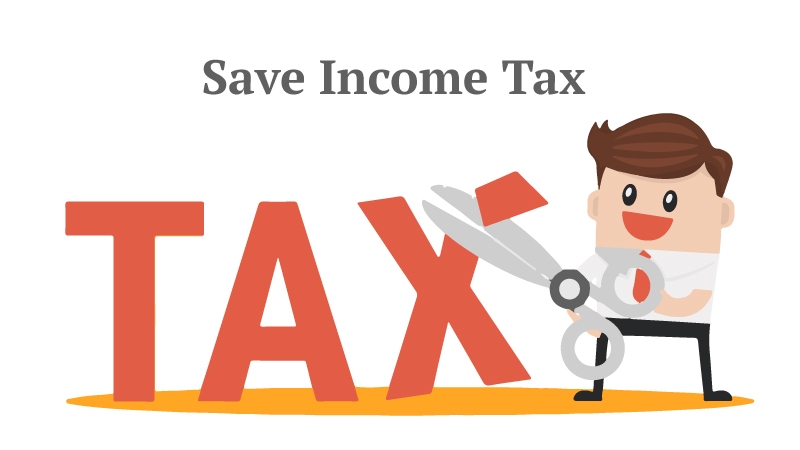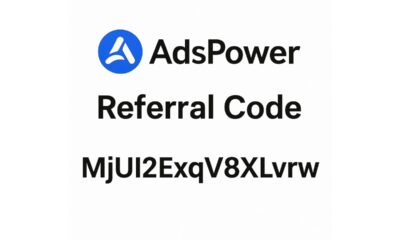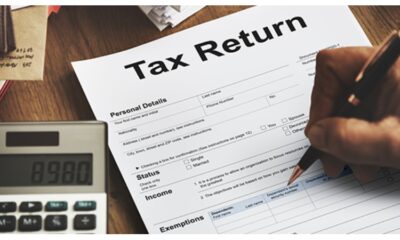Startup
Best Tips to Save Income Tax

The period between April 1, 2023, and March 31, 2024, is referred to as the fiscal year 2023–2024.
The Income Tax Return (ITR) for the earnings of 2023–24 (AY 2024–25) must be filed by July 31 to avoid a late fee.
It is important to remember that this deadline only applies to income earned through March 31 of the financial year 2023–2024 for those who don’t need an audit.
If an income earns a tax audit report, it must be submitted by October 31st.
On the other hand, you have until December 31 to file a late return for the same fiscal year if you fail to file your ITR by July 31. But in that case, there will be some fines for the individual.
The period between April 1, 2023, and March 31, 2024 is referred to as the fiscal year 2023–2024.
You file your returns and declare your investments for tax assessment during the assessment year (AY), which is the year of review for FY 2023–2024.
If you will be filing an ITR under the Old Tax Regime, here are some strategies to reduce your income tax.
Public Provident Fund (PPF)
Because the government backs the Public Provident Fund (PPF), it is one of the most popular investment options. PPF investments up to ₹1.5 lakh are eligible for tax exemptions under Section 80C of the Income Tax Act, 1961. Furthermore, neither the interest earned nor the maturity amount will be subject to taxation.
Open NPS account
Tax advantages are also provided by long-term retirement savings plans like the National Pension System. You can make regular contributions to try to increase the retirement corpus, and you can withdraw 60% of the total amount at maturity. According to Section 80CCD (1), a salaried employee may invest up to 10% of their basic salary and deduct administration costs.
Section 80TTA
Interest on deposits made solely into savings accounts is exempt from tax up to ₹10,000 under section 80 TTA. The amount deposited in recurring and fixed deposits is not covered by this.
Rebate for Housing Allowance
Approximately ₹ 2,00,000 of the interest you pay the bank in total interest payments monthly is tax-free.
Health insurance exemption
You will receive an income tax exemption on the first ₹ 25,000 of your health insurance premiums paid for yourself, your wife, and your children if you are under 60. However, if your parents are over 60 and you are also paying a premium for them, you can receive an extra rebate of up to ₹ 50,000.
Rebate on 80 DD
You may be eligible for an income tax exemption on the costs incurred for any dependents who are specially-abled.
Exemption of 80DDB
A tax exemption is granted under Section 80DDB of the Income Tax Act on the amount paid for a dependent’s medical treatment of a specific illness. These illnesses include AIDS, cancer, AIDS, dementia, aphasia, Parkinson’s, renal failure, thalassemia, and hemophilia.
-

 Travel4 weeks ago
Travel4 weeks agoBwindi’s Gorilla Tourism: Saving Wildlife, Empowering Communities
-

 Education4 weeks ago
Education4 weeks agoJoseph Curran: Using Legal Writing and Advocacy to Simplify Complex Issues for Clients
-

 Tech4 weeks ago
Tech4 weeks agoGoogle Offers New Travel-related Features To Search And Launches Its AI “Flight Deals” Tool Around The World
-

 Business4 weeks ago
Business4 weeks agoStop the Bleeding: How Unanswered Comments Increase Your CAC
-

 Cryptocurrency2 weeks ago
Cryptocurrency2 weeks agoRami Beracha Asks, Can Israel Become A Global Leader In Blockchain Innovation?
-

 Tech3 weeks ago
Tech3 weeks agoAdsPower Promo Code for 50% Off – Ultimate Guide to AdsPower Benefits (Referral Code Included)
-

 Education2 weeks ago
Education2 weeks agoForged in Fire: Nicholas Lawless Unveils Lawless Leadership – The Model Built for a World That Traditional Leadership Can’t Survive
-

 Business2 weeks ago
Business2 weeks agoOPO Group LTD Strengthens Its Global Footprint With Expanding Offices and a Modernized Trading Ecosystem
























